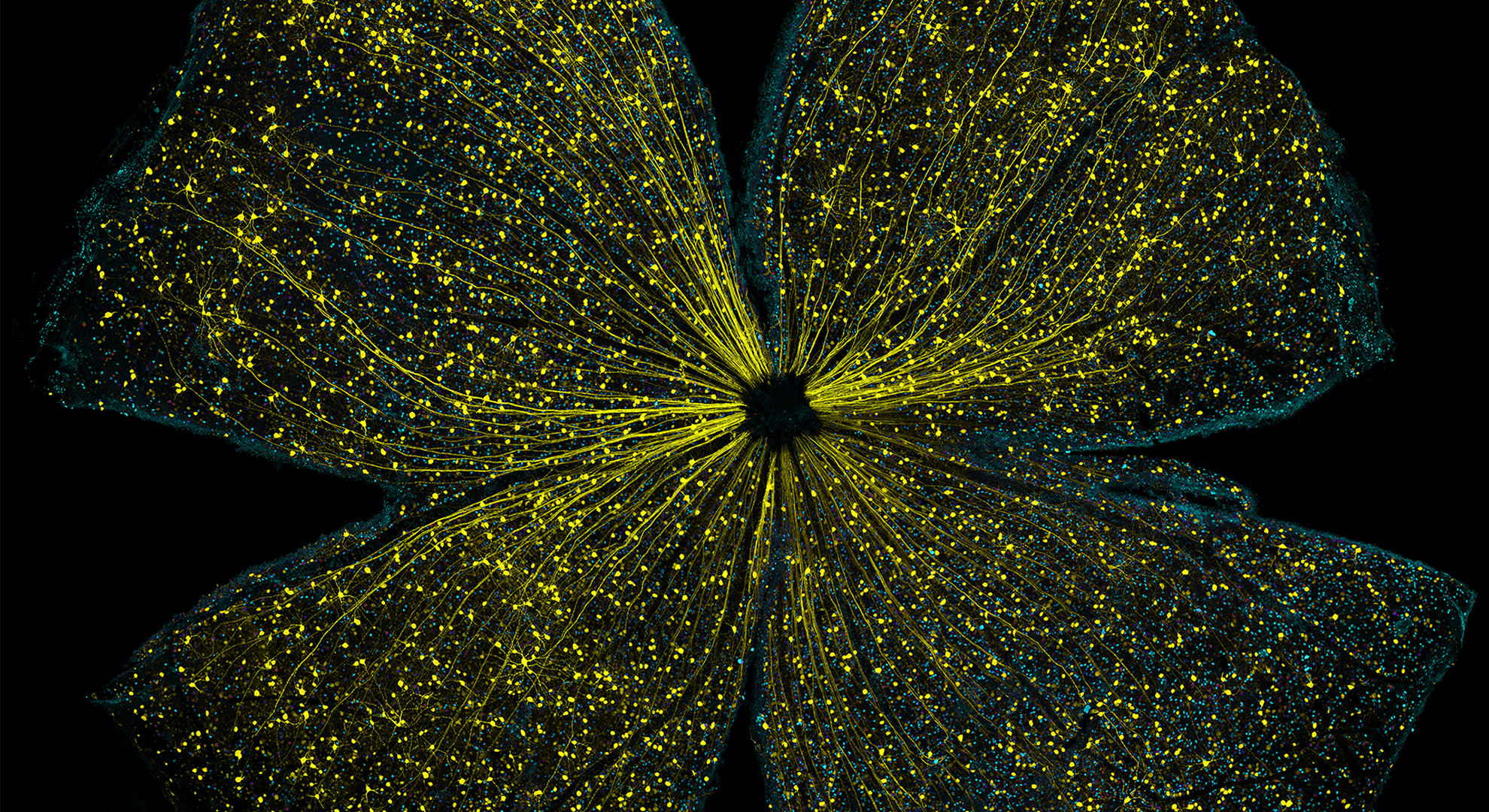View Exhibit
Data curators at the UC San Diego Library have the privilege of working with researchers from a wide range of scientific disciplines as they prepare data for the Library’s Research Data Collections repository. The visually stunning nature of some of the research data sets they curate inspired the Library’s Research Data Curation Program to host its inaugural Art of Science contest in 2021. The contest was created for two reasons: to celebrate the beauty that can emerge during scientific exploration and raise awareness of the Library’s data curation services.
2021 Contest Results
Many of the contest participants used imaging techniques to capture beauty that normally goes unseen by the human eye, which as contest award winner Keunyoung Kim says, “can be so intricately and artistically organized.” In fact, Kim’s own work, “Mouse Retinal Ganglion Cells,” calls attention to the beauty of one of the “key components of visual information,” the retinal ganglion cell, which facilitates our ability to interpret the visual world.
By means of this capacity and the talents of these researcher-artists we can appreciate the tiny underwater organisms in Pichaya Lertvilai’s work, “Drifting World through the Scripps Plankton Camera,” cutting-edge nanobiology and nanotechnology research in Emil Karshalev’s “Vulture Perched on a Branch Waiting for its Next Meal” and Steven Edward Bopp’s “Polymer-encased Ag nanocube light source,” respectively; a pancreatic cancer tumor in Partha Ray’s image, “Red, White & Blue”; the common fruit fly transformed into a magnificent giant in Thomas Deerinck’s work, “Drosophila melanogaster”; and in Lorenzo Casalino’s work, “A Deceitful Handshake,” the microscopic giant that has dominated our lives over the last 15 months: COVID-19.
Finally, Eleanor Quirk’s image, “Diagonal Samples,” is accompanied by a thoughtful and passionate narrative that resets our lens to a broad perspective and to one of the core goals of the UC San Diego campus research mission: to help us understand the world we live in, empower us to better interact with our environments, and “ultimately make us better citizens of planet Earth.”
The Library’s Research Data Curation Program is grateful that despite these difficult, demanding and stressful times, the participants shared their work and gave us a glimpse into their worlds of research.
Contact:

